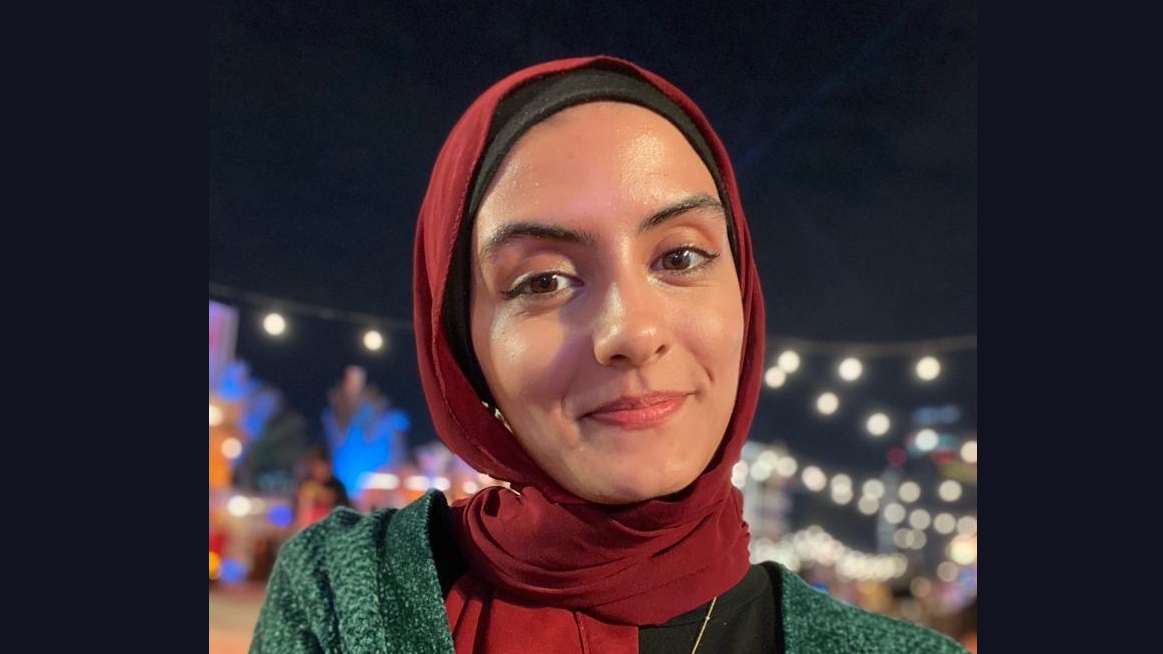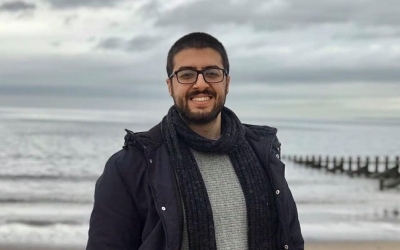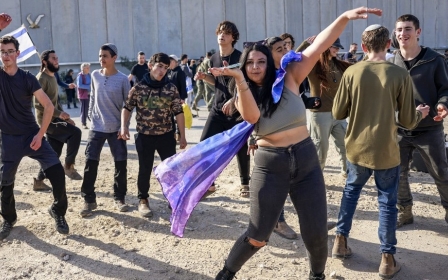Home Office refuses visa for Palestinian refugee supported by prestigious UK scholarship

The UK Home Office has refused to grant a visa to a Palestinian refugee previously supported by a prestigious British government scheme and now awarded a full scholarship to study for a doctorate at the London School of Economics.
Amena El Ashkar, who was born and raised in Lebanon and describes herself as a stateless Palestinian, successfully applied for the four-year PhD programme at LSE in 2022.
In 2019 Ashkar was a recipient of a Chevening Scholarship, a programme for "emerging leaders" funded by the UK's Foreign, Commonwealth & Development Office, which enabled her to complete a master's degree in Israeli studies at London's School of Oriental and African Studies (SOAS).
But in a response to her visa application, the Home Office told Ashkar that it had been denied on the grounds that granting it would "harm the public interest", without giving any further reasons or explanation.
Ashkar then instructed lawyers to submit a judical review proceedings against the decision. But she later discovered that the Home Office had failed to disclose that the home secretary - who was then Suella Braverman - had personally approved the decision, which led to her lawyers submitting her appeal to the wrong court.
New MEE newsletter: Jerusalem Dispatch
Sign up to get the latest insights and analysis on Israel-Palestine, alongside Turkey Unpacked and other MEE newsletters
Last week, a judge in the Upper Tribunal for Immigration and Asylum cases criticised the current home secretary, James Cleverly for failing to disclose that he had personally certified the decision to not give Ashkar a student visa and said it was "unlawful".
Ashkar's lawyers said the Home Office's failure to provide any reason why her visa was denied was "difficult to fathom" and "raises questions as to whether it has been refused because of the relationship between the United Kingdom and another country".
'Unjust' decision
In addition to her studies, Ashkar is also a commentator for publications including Middle East Eye, writing extensively on the plight of Palestinian refugees.
Commenting on her situation, Ashkar told Middle East Eye that it was "unfortunate and unjust" that the Home Office had denied her a chance to complete her studies at LSE.
“As a third-generation Palestinian refugee born and raised in a Lebanese refugee camp, I’ve experienced firsthand the extremely difficult and challenging conditions prevalent in these camps," she said.
'Why must a Palestinian refugee wage a battle for every aspiration, however justified? Why are our paths laden with obstacles?'
- Amena El Ashkar
"My acceptance into the PhD programme at a prestigious institution like the LSE was a source of immense pride, not just for my family and friends but for the entire community in the camp.
"This situation begs the question: why must a Palestinian refugee wage a battle for every aspiration, however justified? Why are our paths laden with obstacles? The fundamental right to freely move and pursue education seems to be an elusive privilege, rather than a universal right, for people like us.”
Human rights lawyer Alexander Hogg, who represents Ashkar, said it was "unfair" that the Home Office had not explained why she was denied a student visa.
"It is also deeply concerning that the home secretary refuses to provide any detail as to why our client has been refused a visa," said Hogg.
"By any measure, she is an exceptional student who will contribute to the UK’s status as a world leader in education. It is, therefore, perplexing that the Home Office has refused her a student visa and continues to maintain its position against providing reasons for the refusal.
"More importantly, it is deeply unfair to our client. She deserves to know why the home secretary has refused her entry to the UK and the public deserves to know if visa decisions are being properly made.”
The FCDO declined to comment and said the case was a matter for the Home Office. The Home Office did not comment at the time of writing.
Ashkar obtained her Chevening scholarship in the same year as Maisara al-Rayyes, who was killed in an Israeli strike on his home in Gaza in November.
Rayyes used the Chevening Scholarship to study for a master's in Women and Children's Health at King's College London.
Rayyes died alongside his family after he was trapped under the rubble of his family home for 60 hours.
The Chevening scholarship paid tribute to Rayyes and sent their "condolences to his surviving family".
But many, including the Palestinian ambassador to the UK, criticised the statement as "unacceptable" as it failed to mention that Rayyes had died after Israel struck his home.
On Thursday, dozens of Chevening scholars, past and present, also joined a sit-in protest outside the London School of Economics to commemorate Rayyes and demand a ceasefire in Gaza.
Middle East Eye delivers independent and unrivalled coverage and analysis of the Middle East, North Africa and beyond. To learn more about republishing this content and the associated fees, please fill out this form. More about MEE can be found here.





